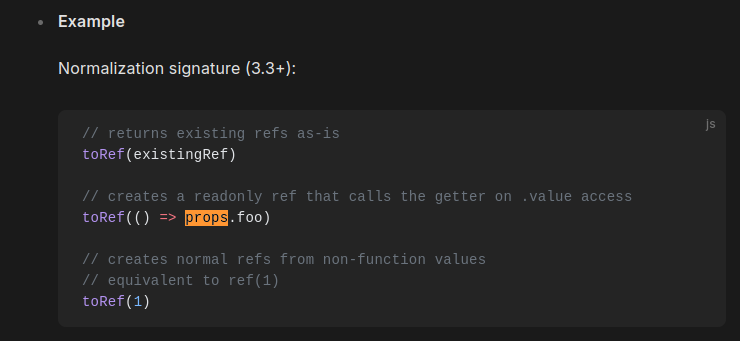I've seen a pattern of using props in of CompositionAPI very often,
that is use toRefs to make all entries of props ref.
I'm kind of confused by it.
For exmaple, from the Vue 3 official guide:
export default {
props: {
user: {
type: String,
required: true
}
},
setup(props) {
const { user } = toRefs(props)
//... use user's value
}
}
I have 2 questions in 2 scenearios:
when the props.user is already reactive
Its value will change if it's changed in any ancestors, so why we need to usetoRefs? Doesn't it already reactive?if it's not reactive, it's just a primitive string value
Does making it reactive means we're going to change its value? I think making a object reactive also imply that its value is welcomed to be changed. But all the guides and linters warn us that we'd better not to change the props value.(for not writing to the computed value or something)
If I can change the props value directly in the component, I no longer need to emit the changes to parent component everytime. It's very convenient but I don't know whenther it is a good idea to change the props value after we're sure it becomes reactive?


